MAIN SPACE EXHIBITION/
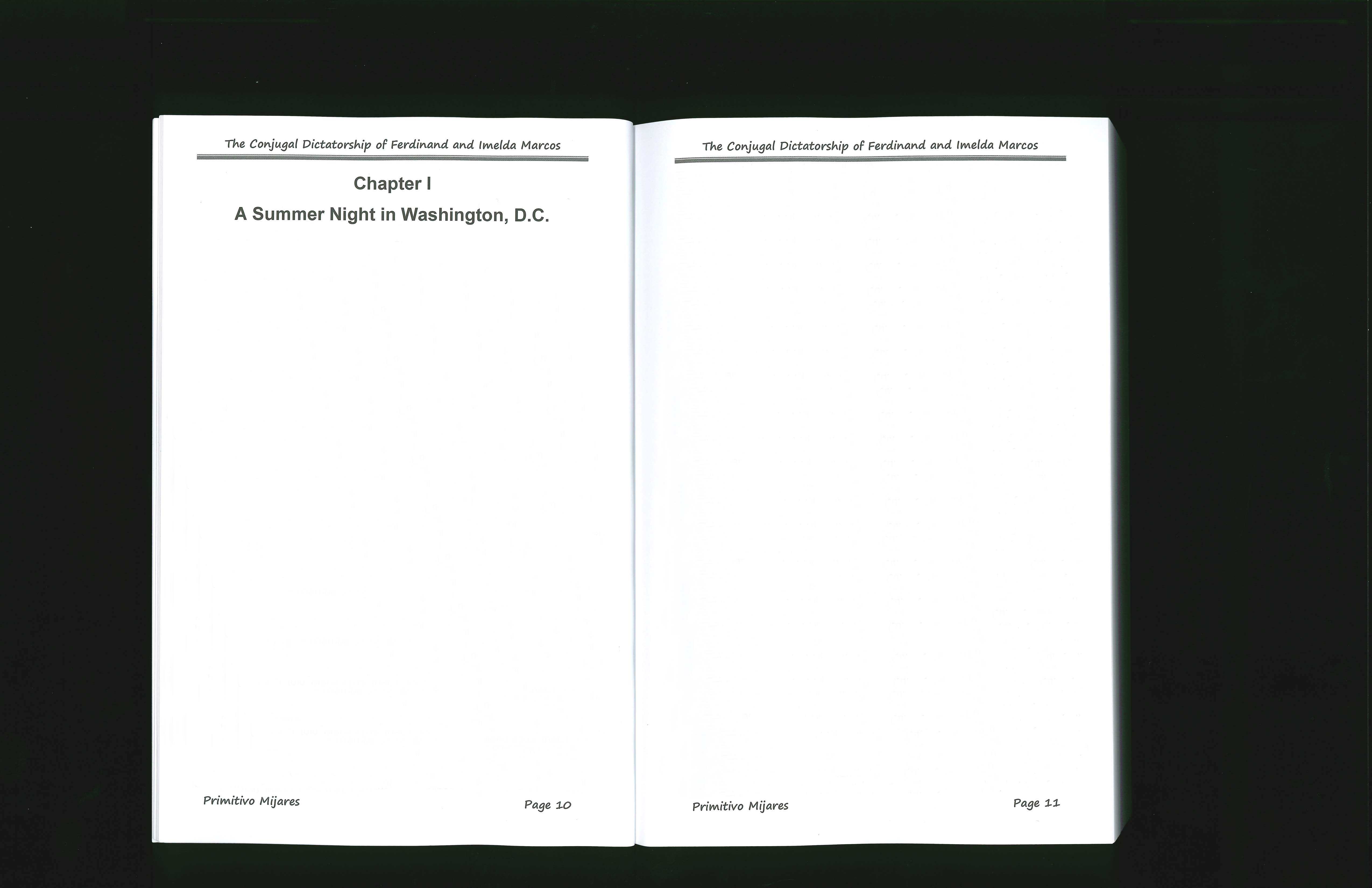
Cris Mora, Book Challenge, 2022. Image courtesy of the artist.
The New New Society: Ang Bagong Bagong Lipunan
Cris Mora
September 16 – October 29, 2022
Opening Reception: Friday, September 16th, 2022, 7PM - 9PM
Canada has long been a site of migration for Filipinos. You will find Filipinos working across the country in every industry. These Overseas Foreign Workers (OFWs) are separated from family for years while supporting dozens of people back in the Philippines. Their remittances account for nearly 10% of the GDP of the Philippine economy in 2019.
Sadly, OFWs are leaving for the same reasons today as the previous generations did decades earlier. Those that left during the Marcos dictatorship of the seventies and eighties have seen the cycle of corruption, poverty and state sponsored violence repeat itself through successive administrations. The process has come full circle with the election of Ferdinand “Bong Bong” Marcos Jr., the son of the late dictator, as the 17th President of the Philippines in 2022. Thirty-six years after his father was ousted from power, the younger Marcos threatens to correct the wrongs of the history books that “are teaching the children lies.”
This exhibition is an exploration of the fragility of history and the dangers that come when it is made malleable. Through video, photography and installation, Mora investigates how the situation got to this point and what it may mean for the future of the Philippines, as well as the impact on those who have been forced to leave.
Sadly, OFWs are leaving for the same reasons today as the previous generations did decades earlier. Those that left during the Marcos dictatorship of the seventies and eighties have seen the cycle of corruption, poverty and state sponsored violence repeat itself through successive administrations. The process has come full circle with the election of Ferdinand “Bong Bong” Marcos Jr., the son of the late dictator, as the 17th President of the Philippines in 2022. Thirty-six years after his father was ousted from power, the younger Marcos threatens to correct the wrongs of the history books that “are teaching the children lies.”
This exhibition is an exploration of the fragility of history and the dangers that come when it is made malleable. Through video, photography and installation, Mora investigates how the situation got to this point and what it may mean for the future of the Philippines, as well as the impact on those who have been forced to leave.
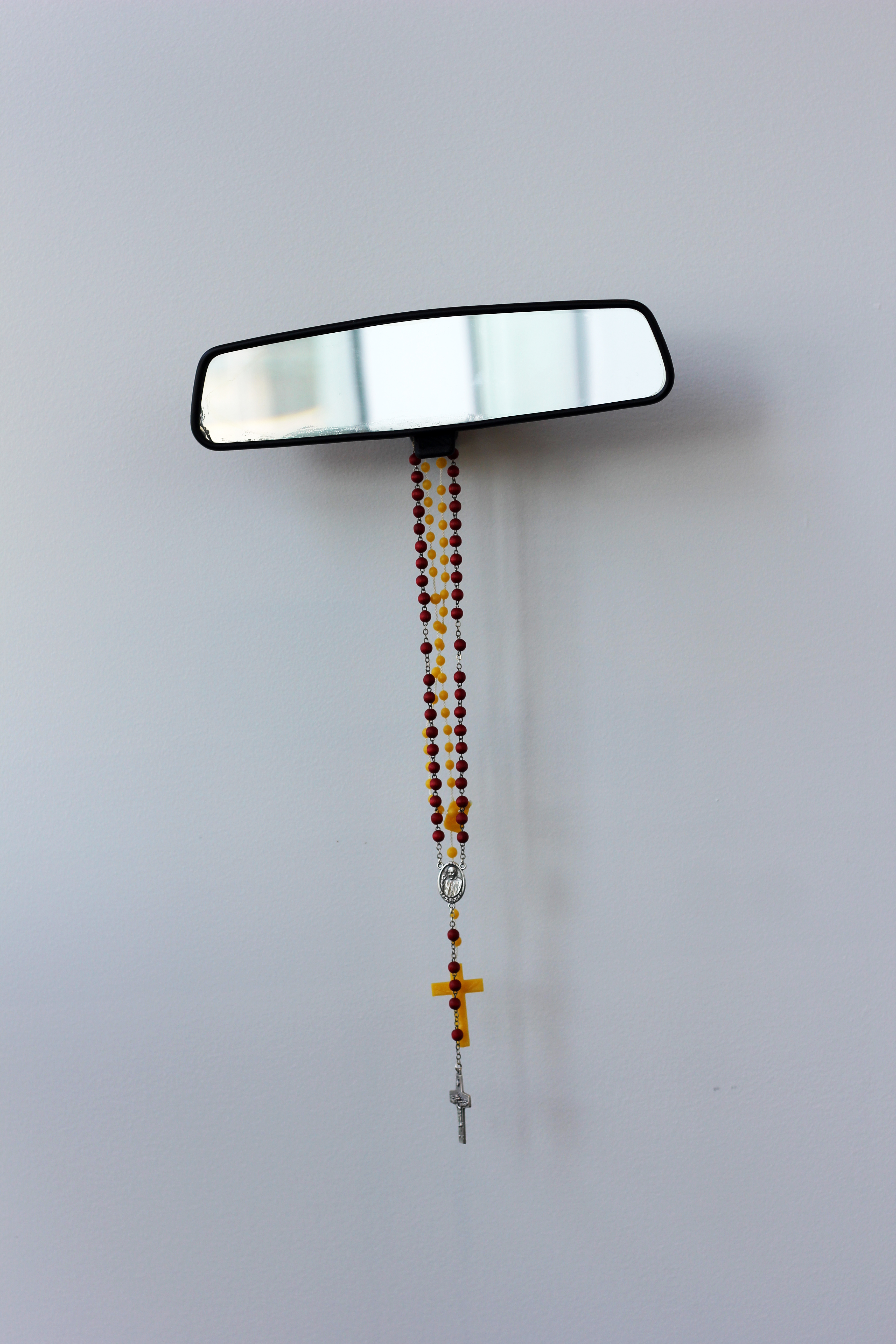
Cris Mora, Mirror Check (detail), 2022. Image courtesy of the artist.
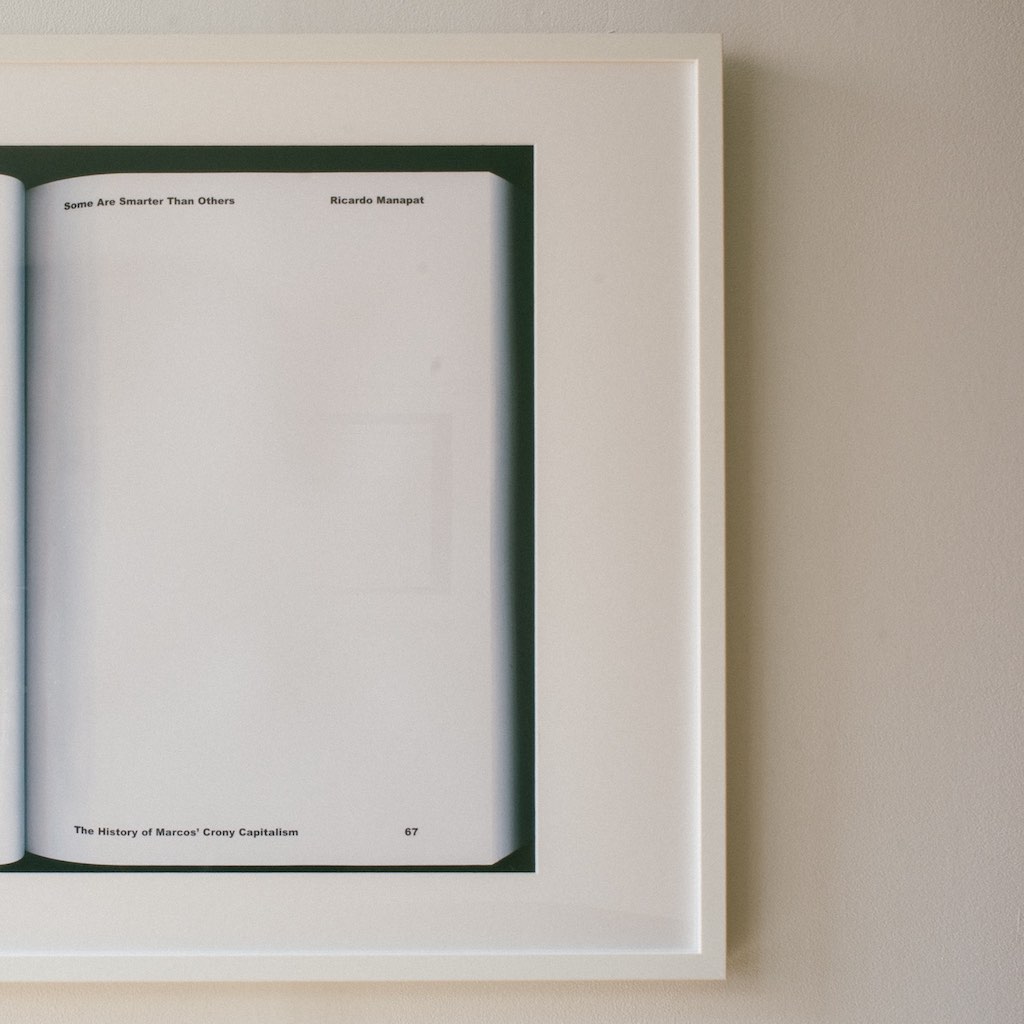
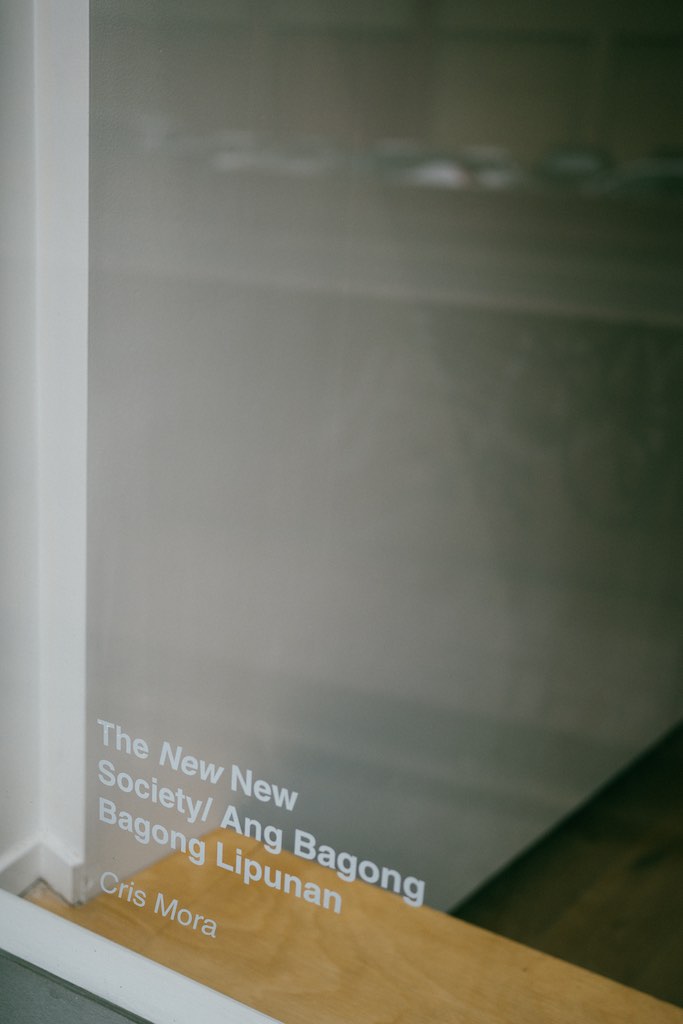
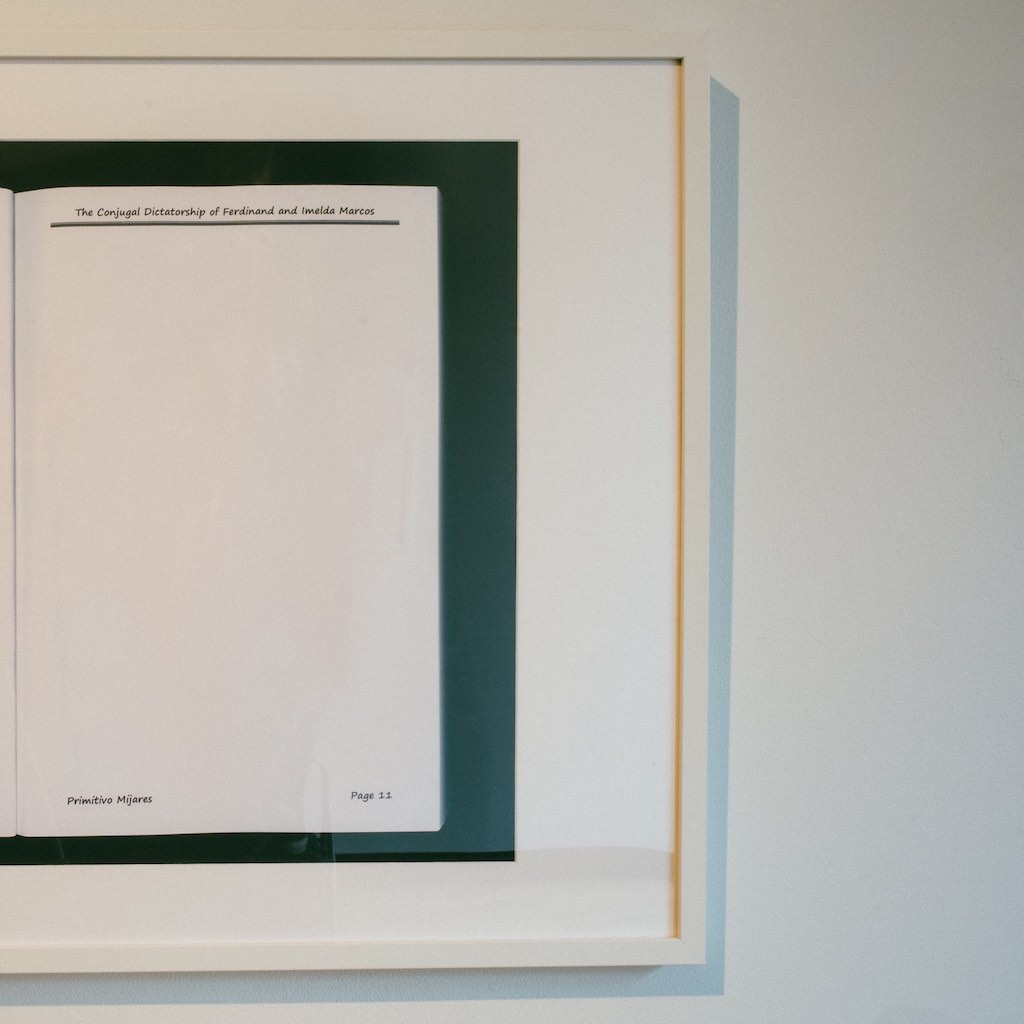
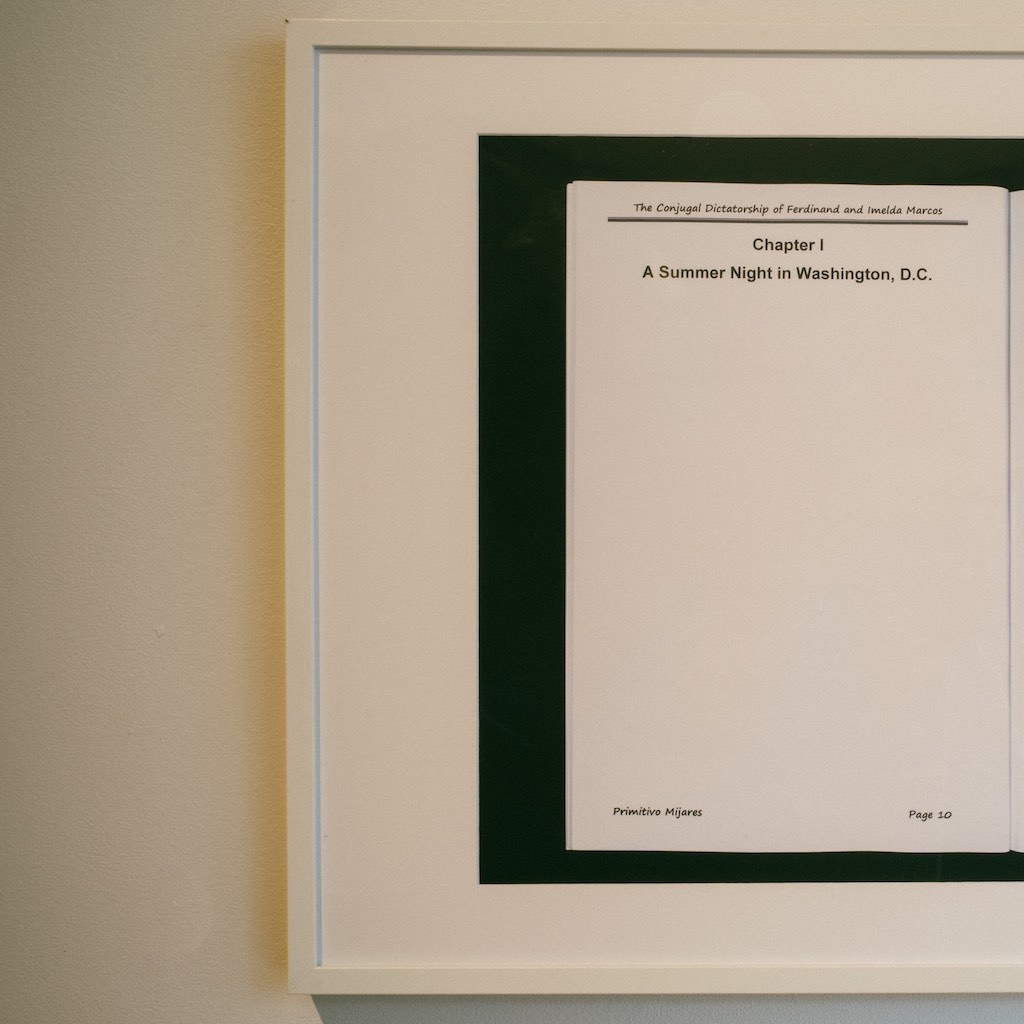

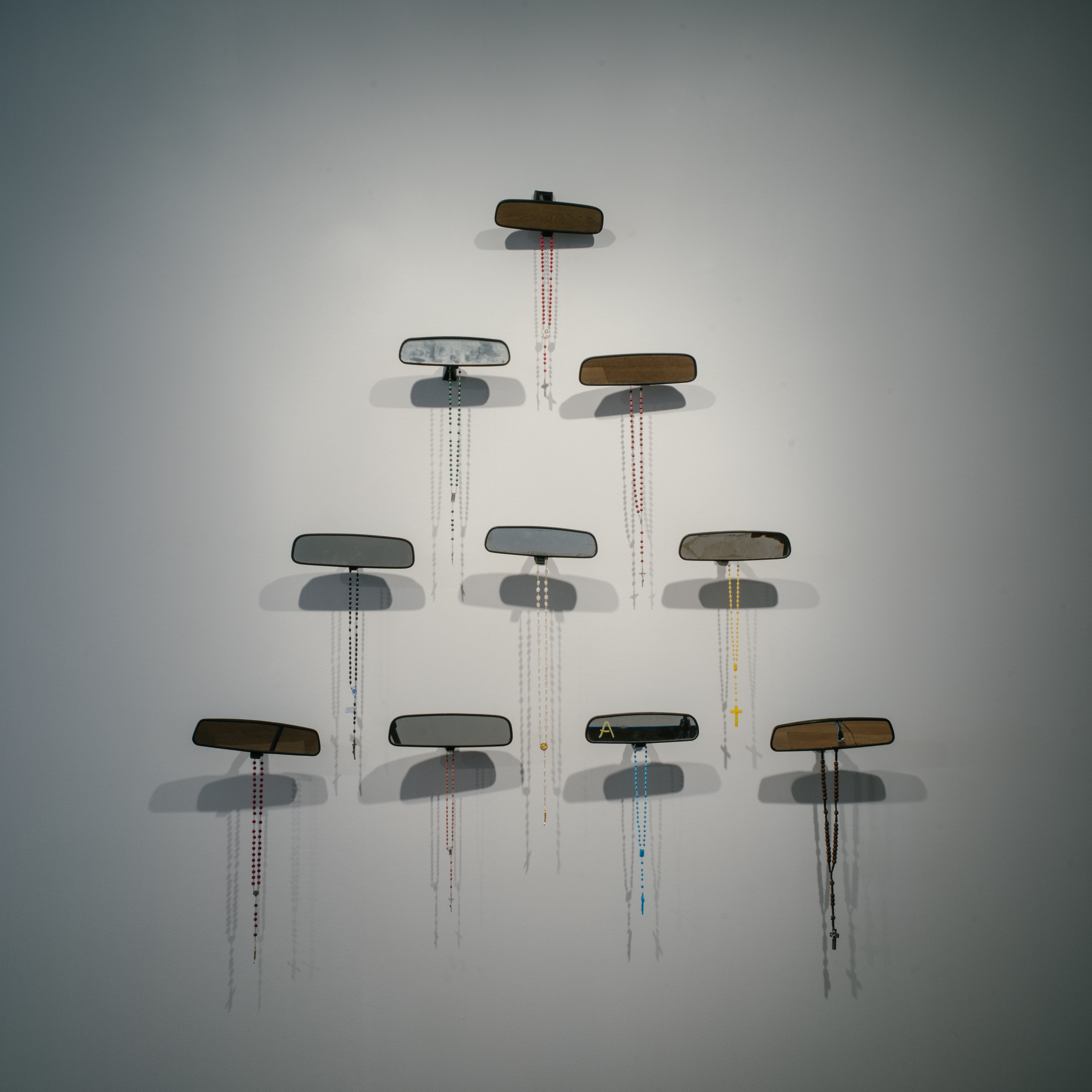
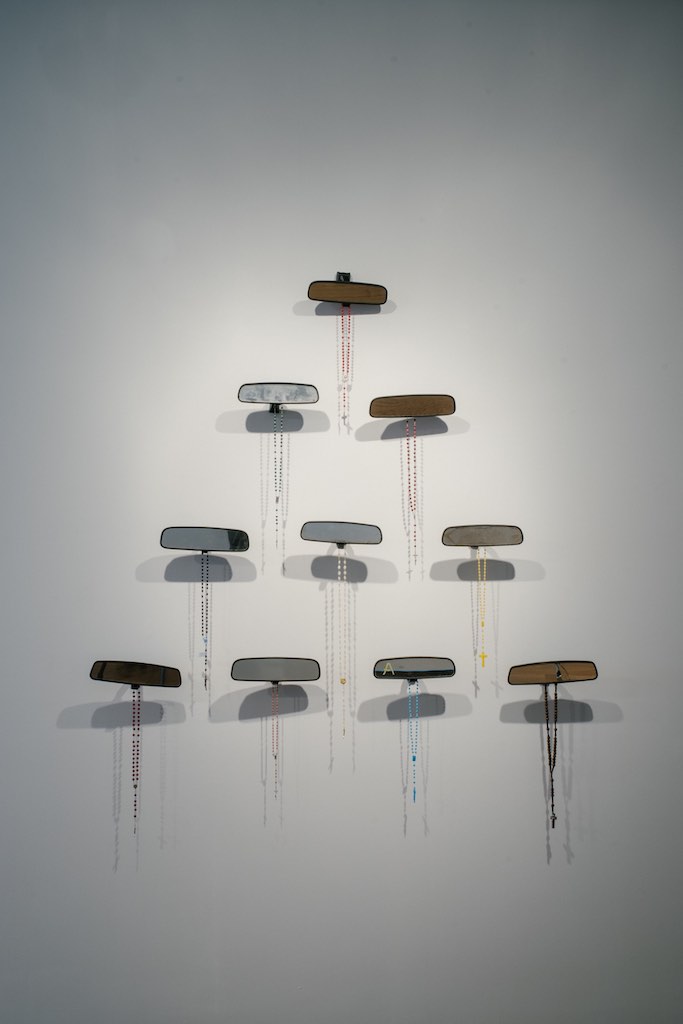


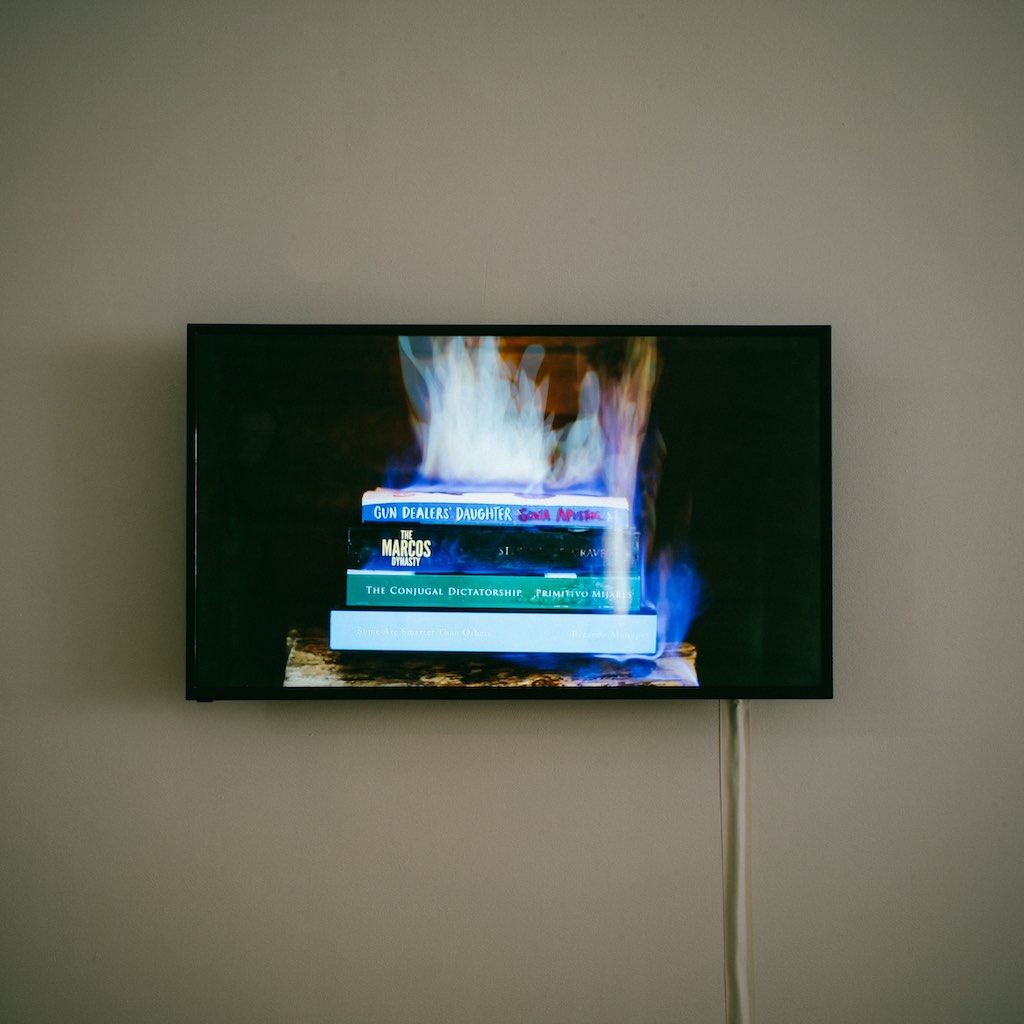
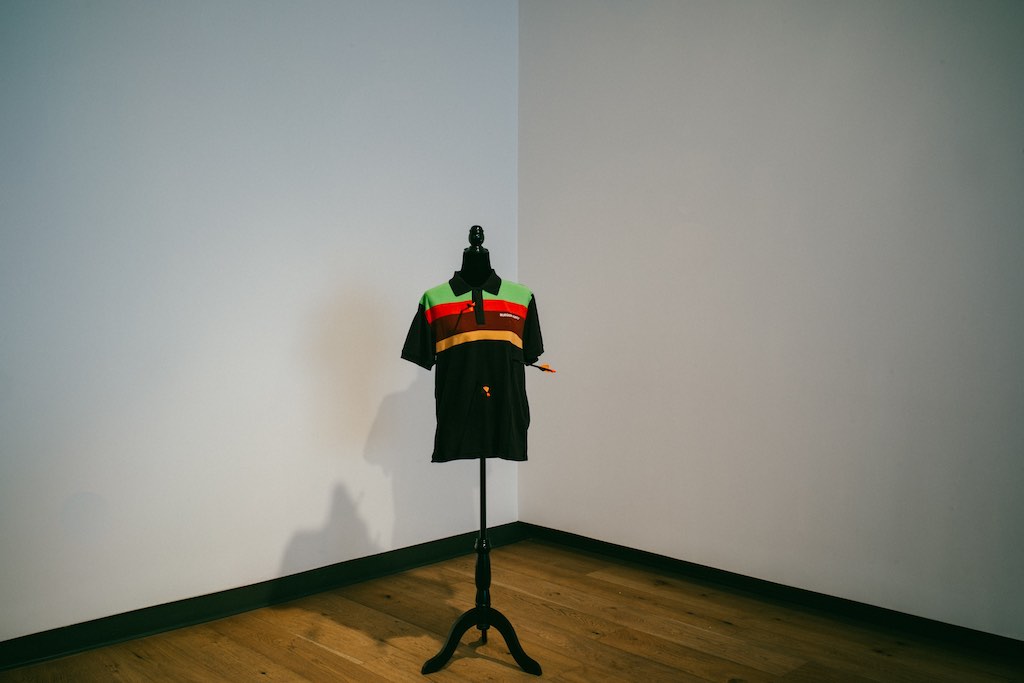
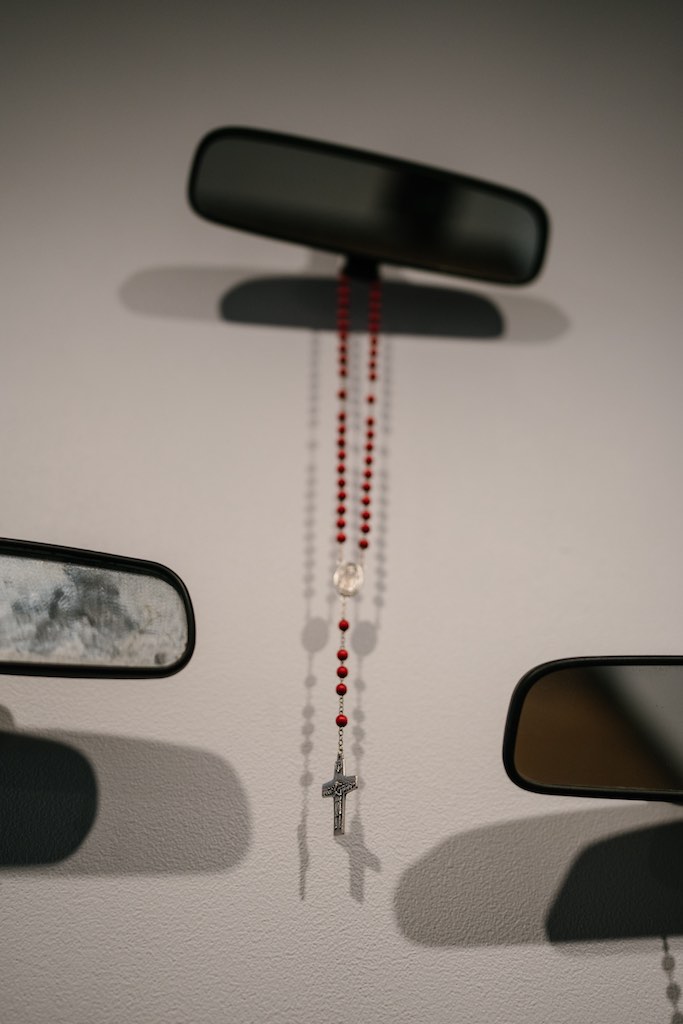

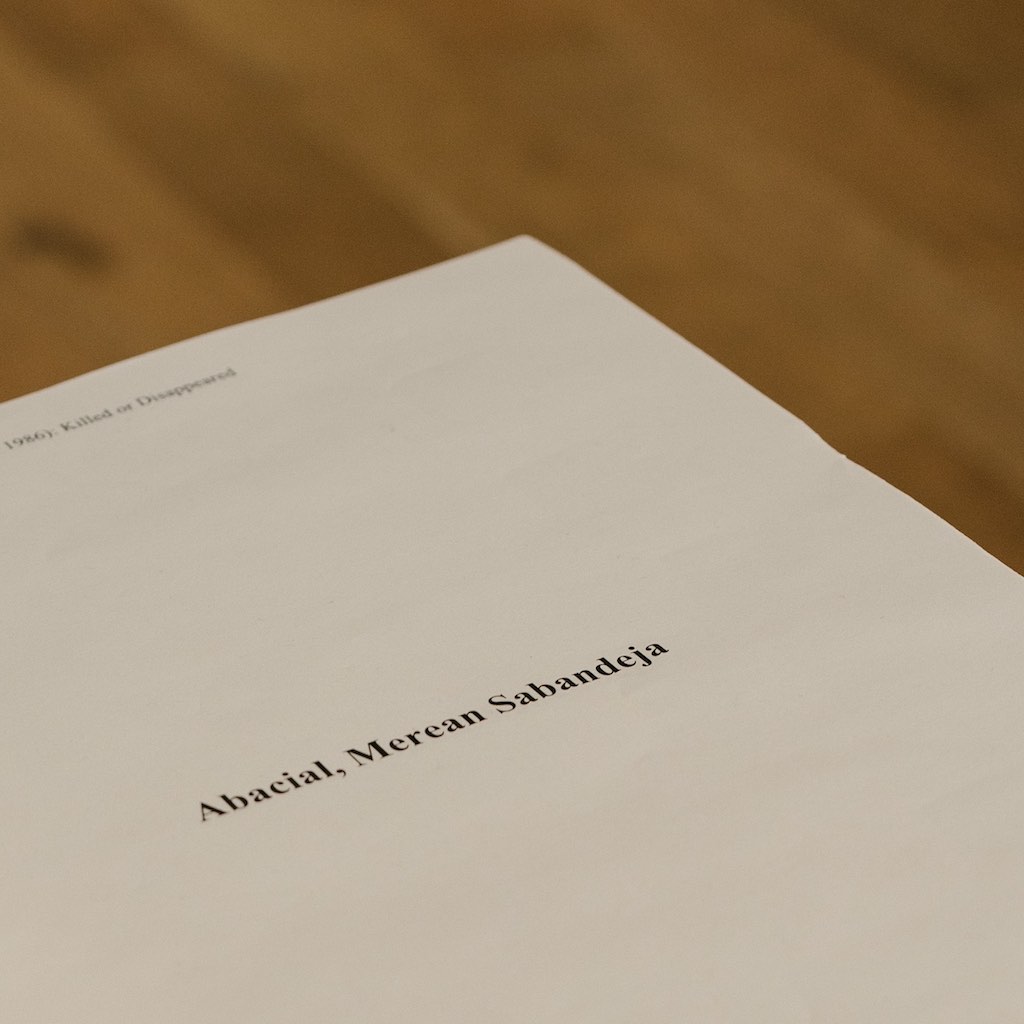
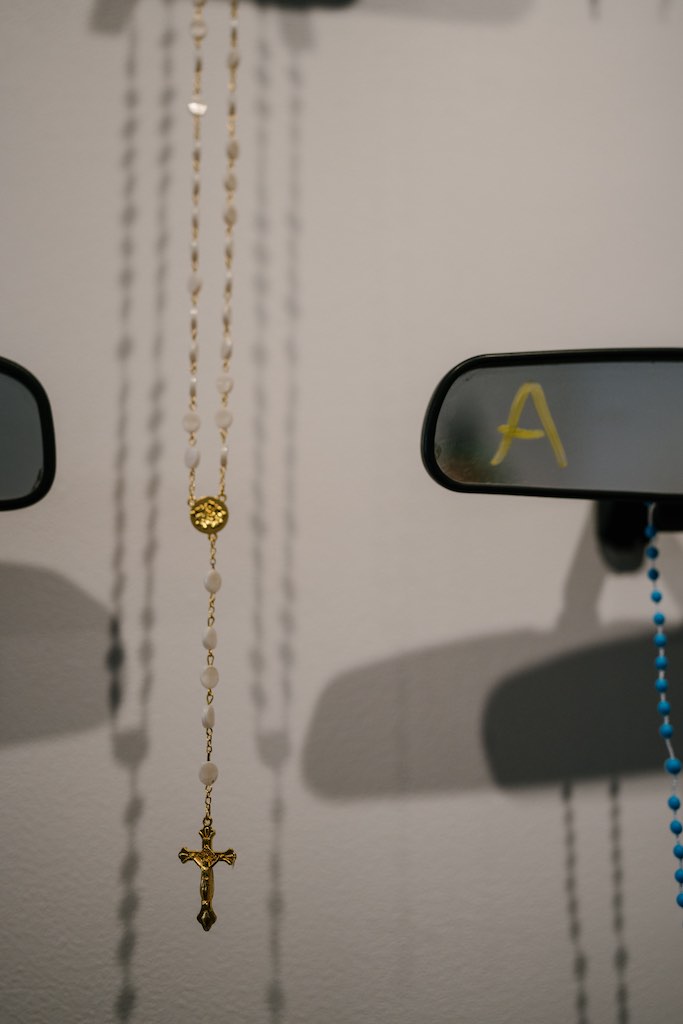
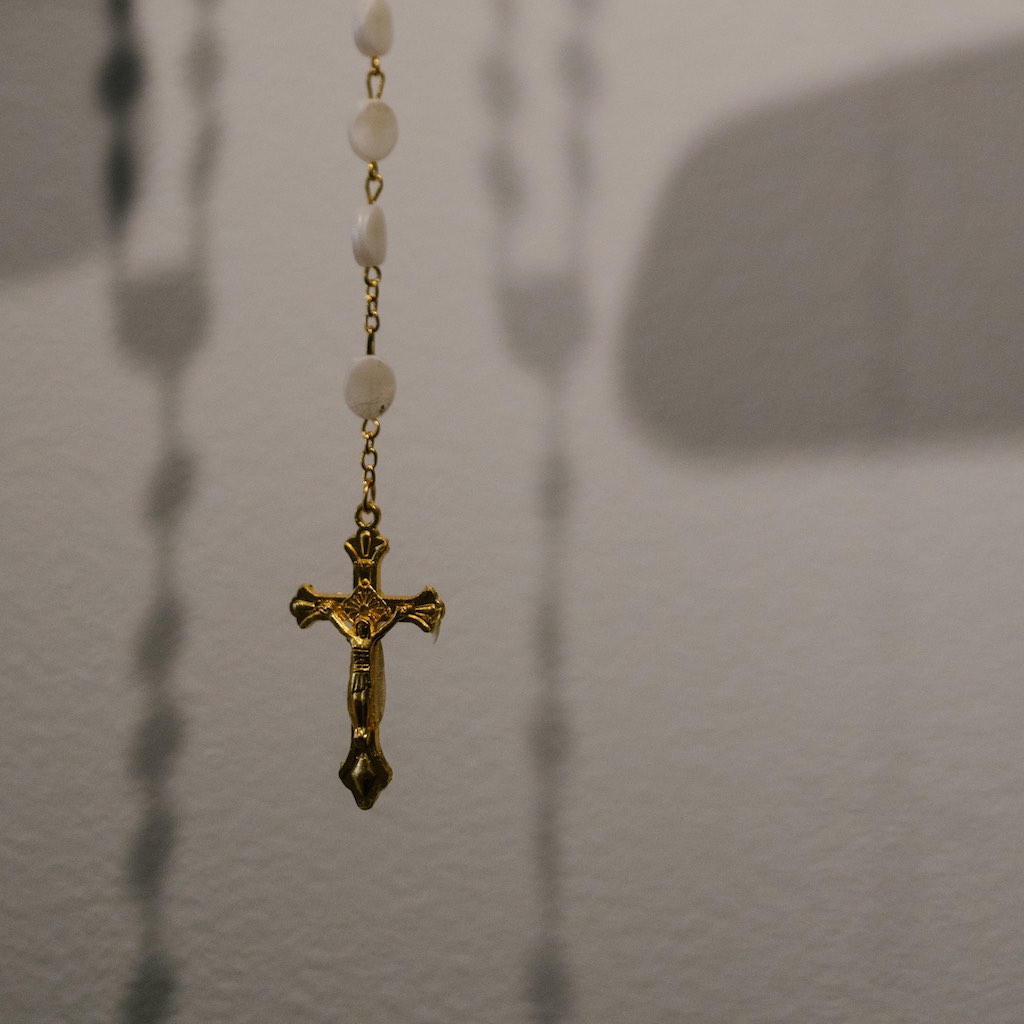

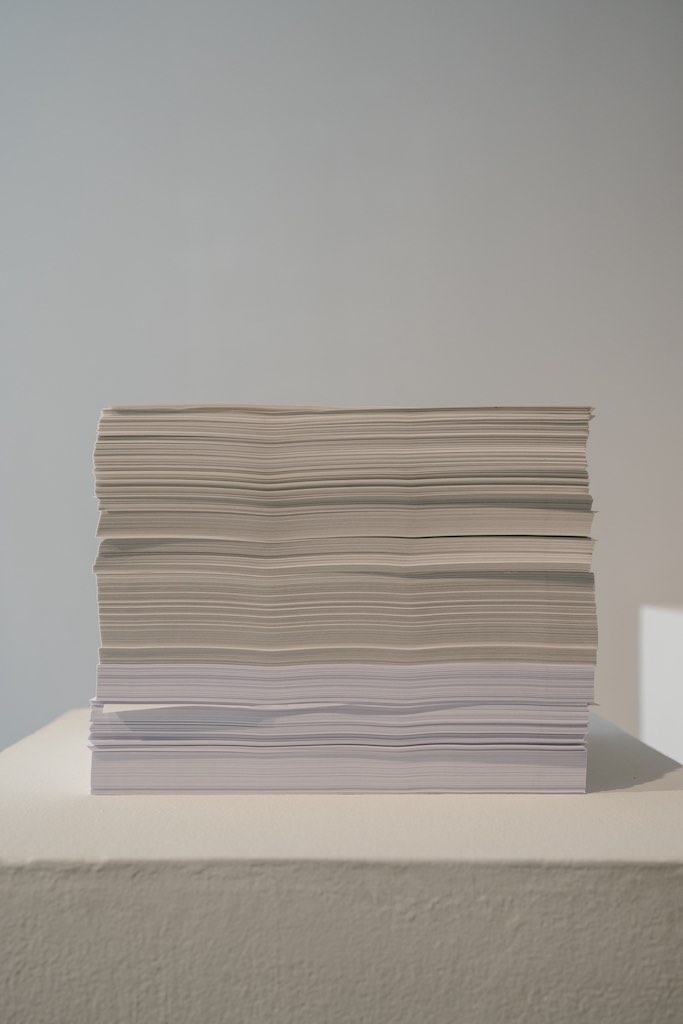
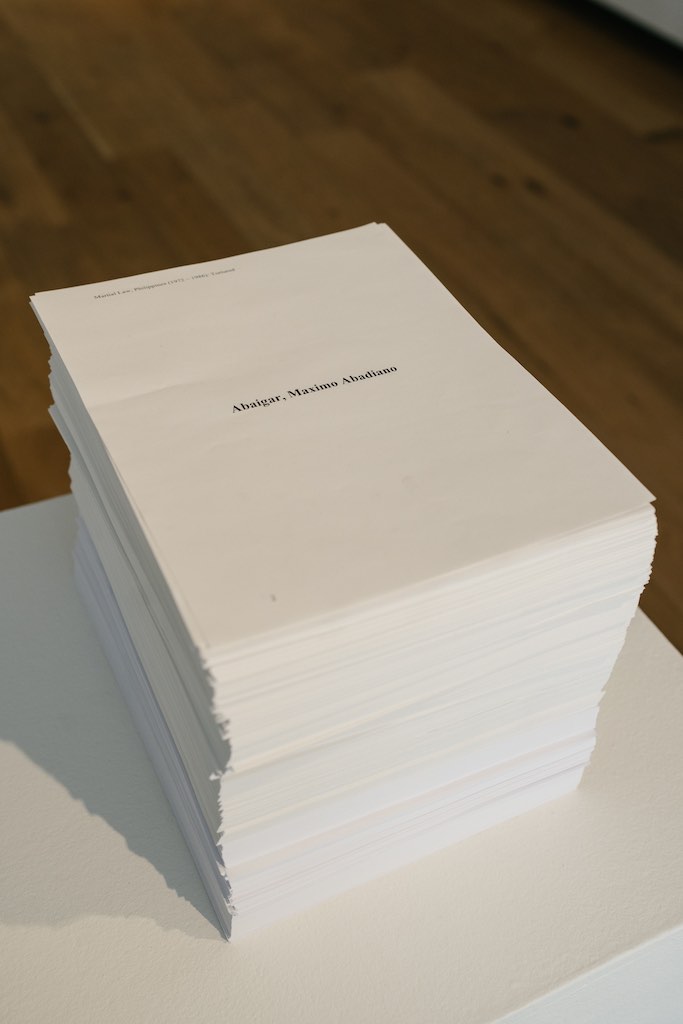
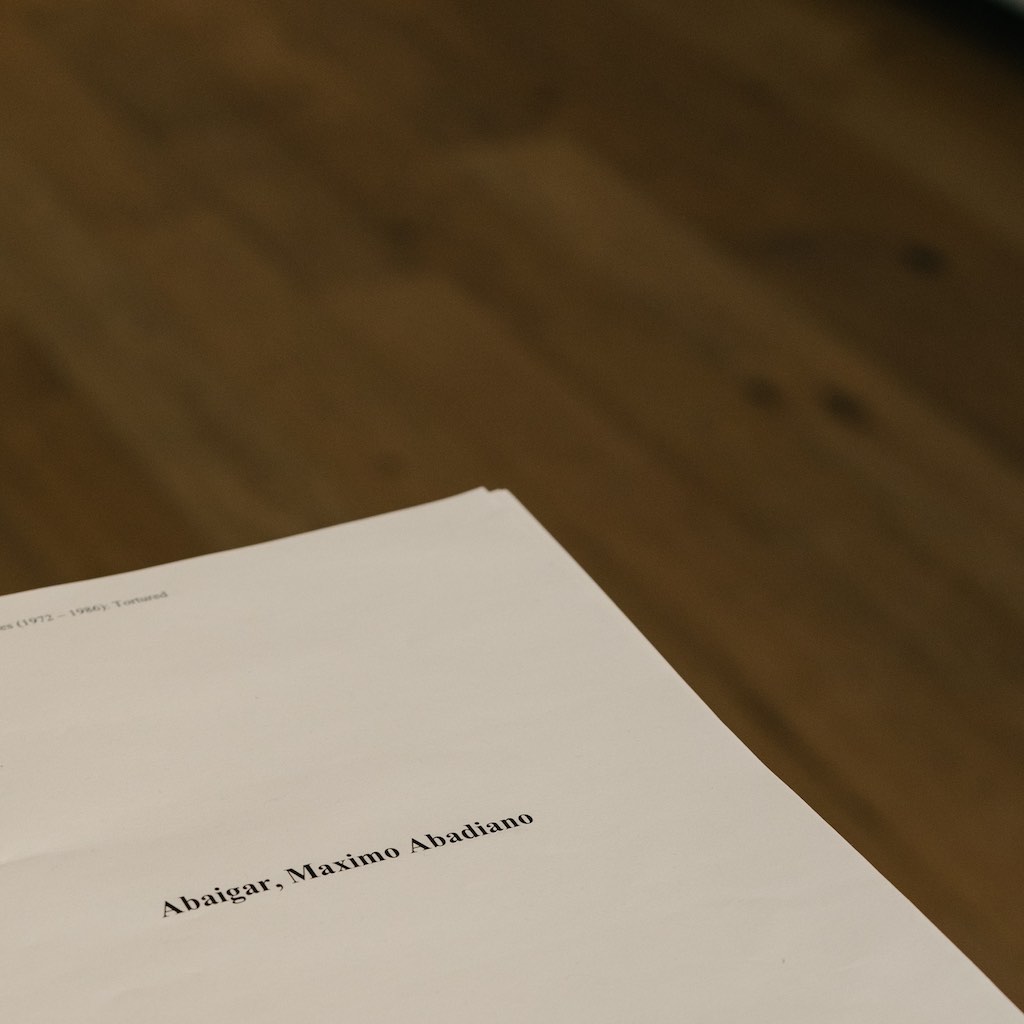
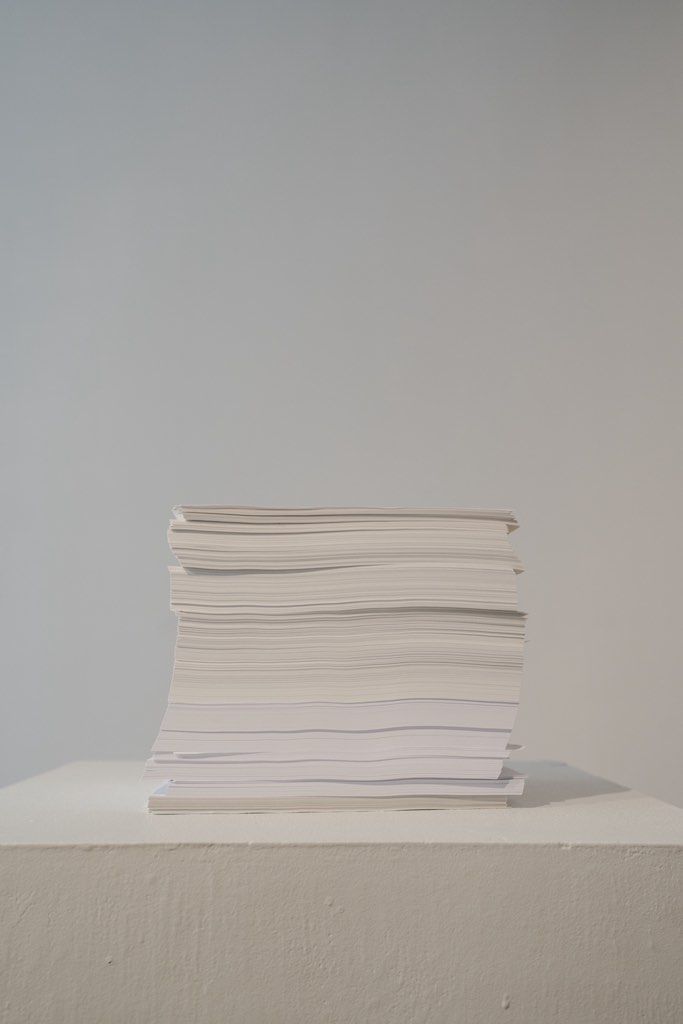
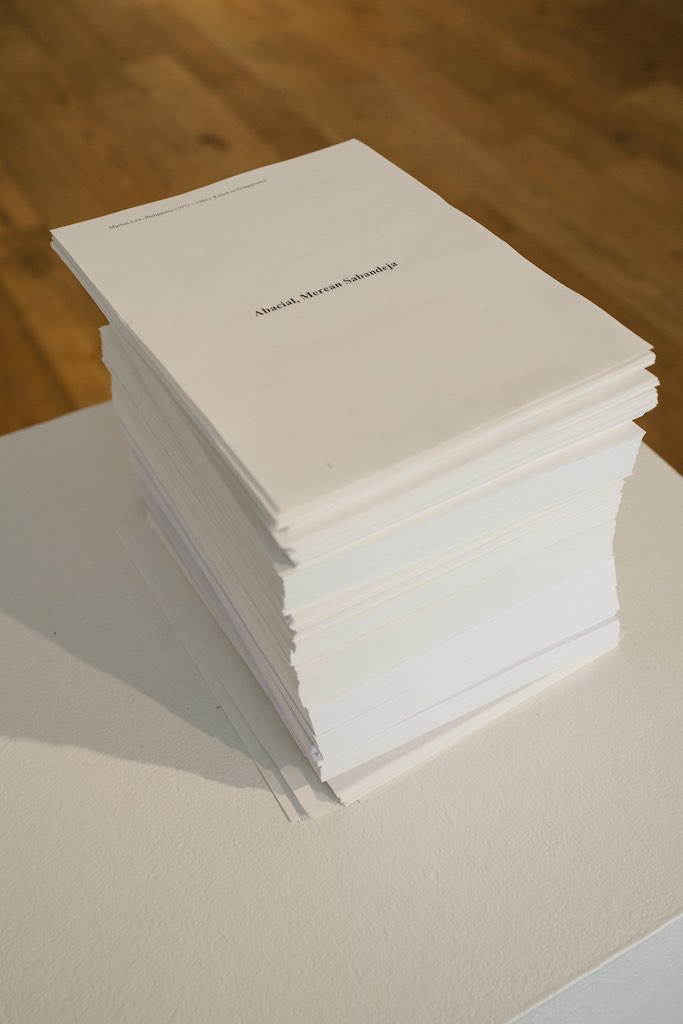
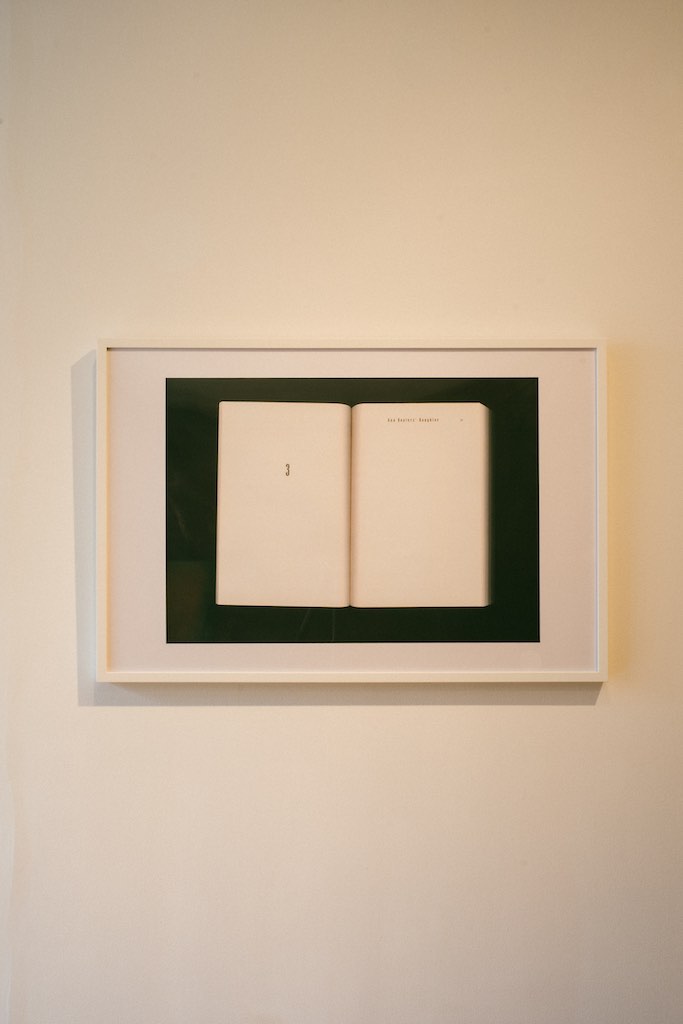
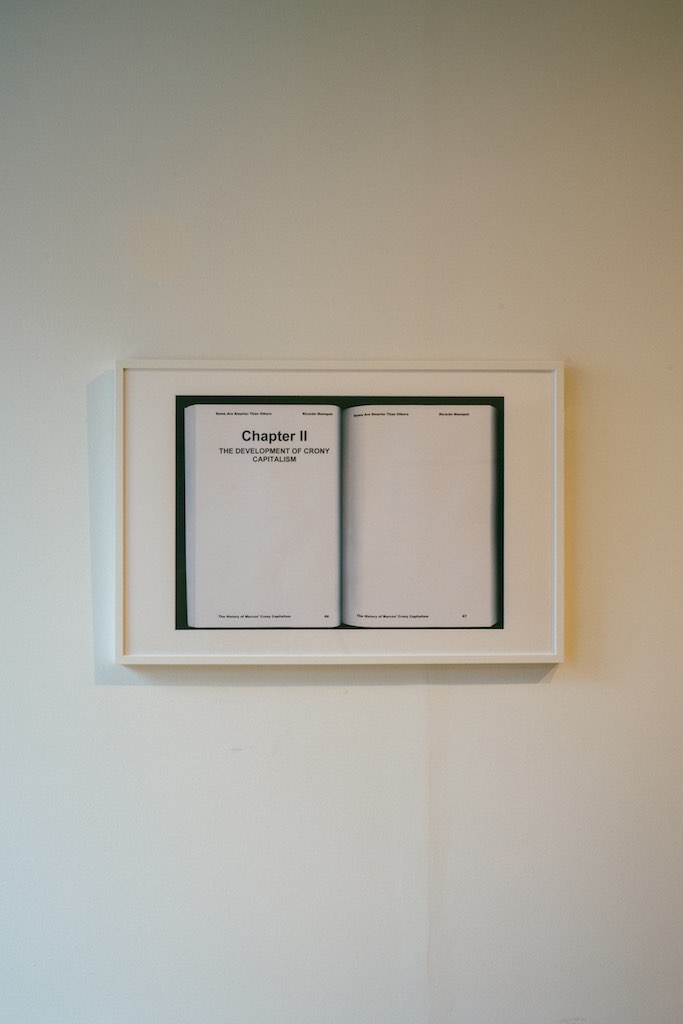
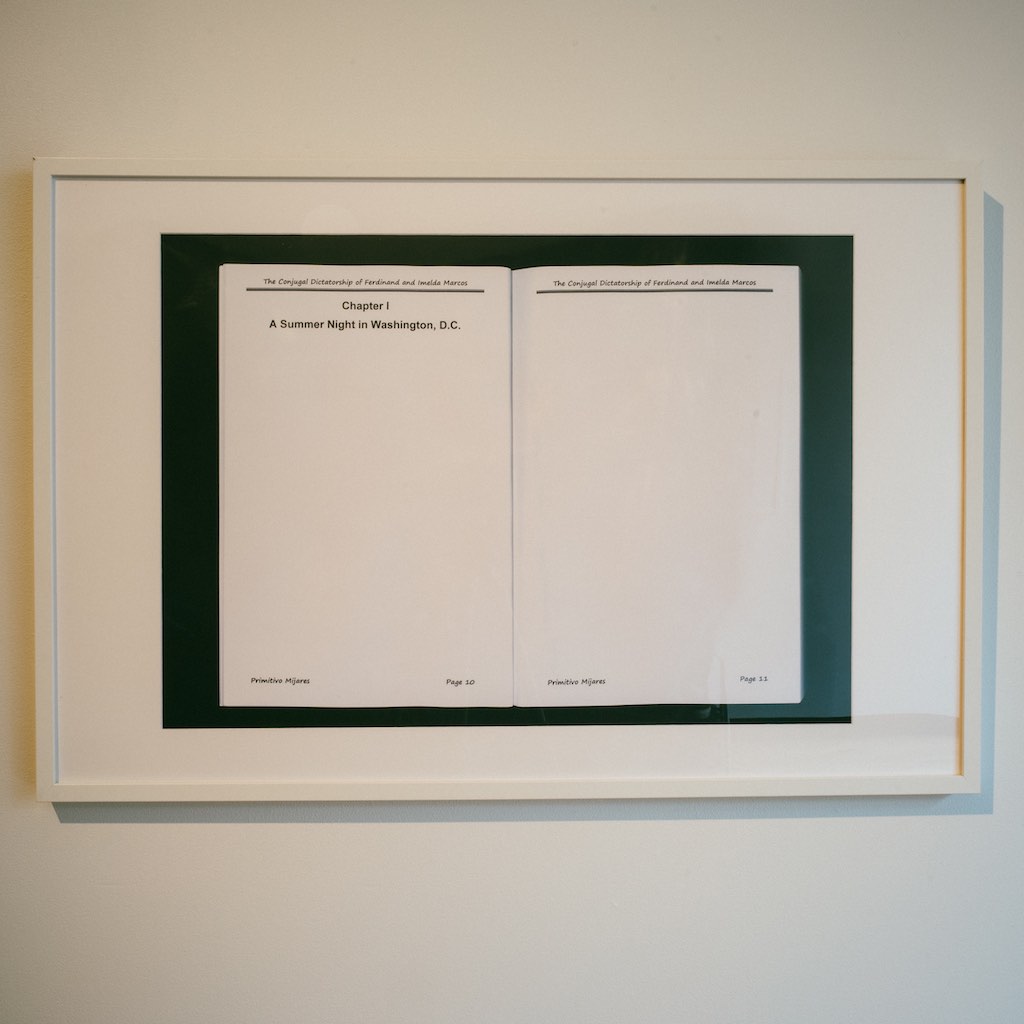
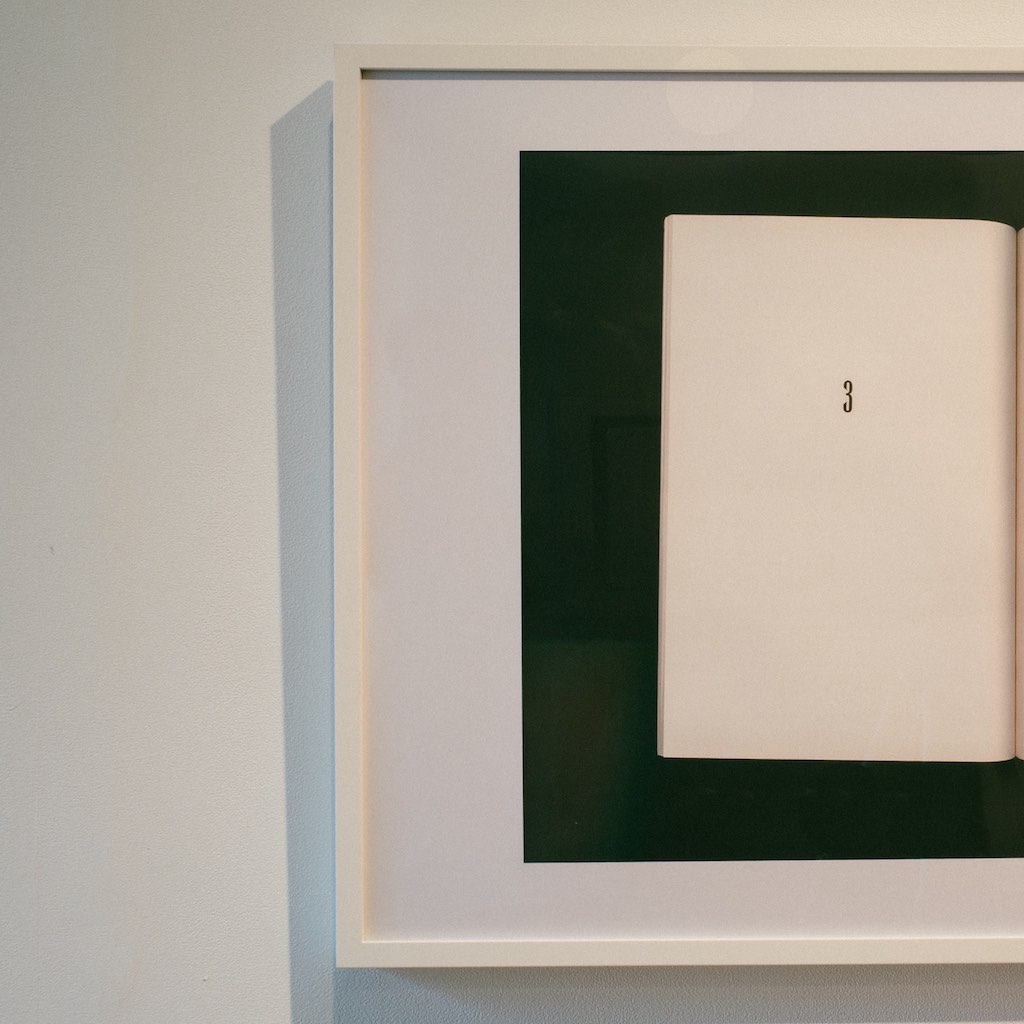
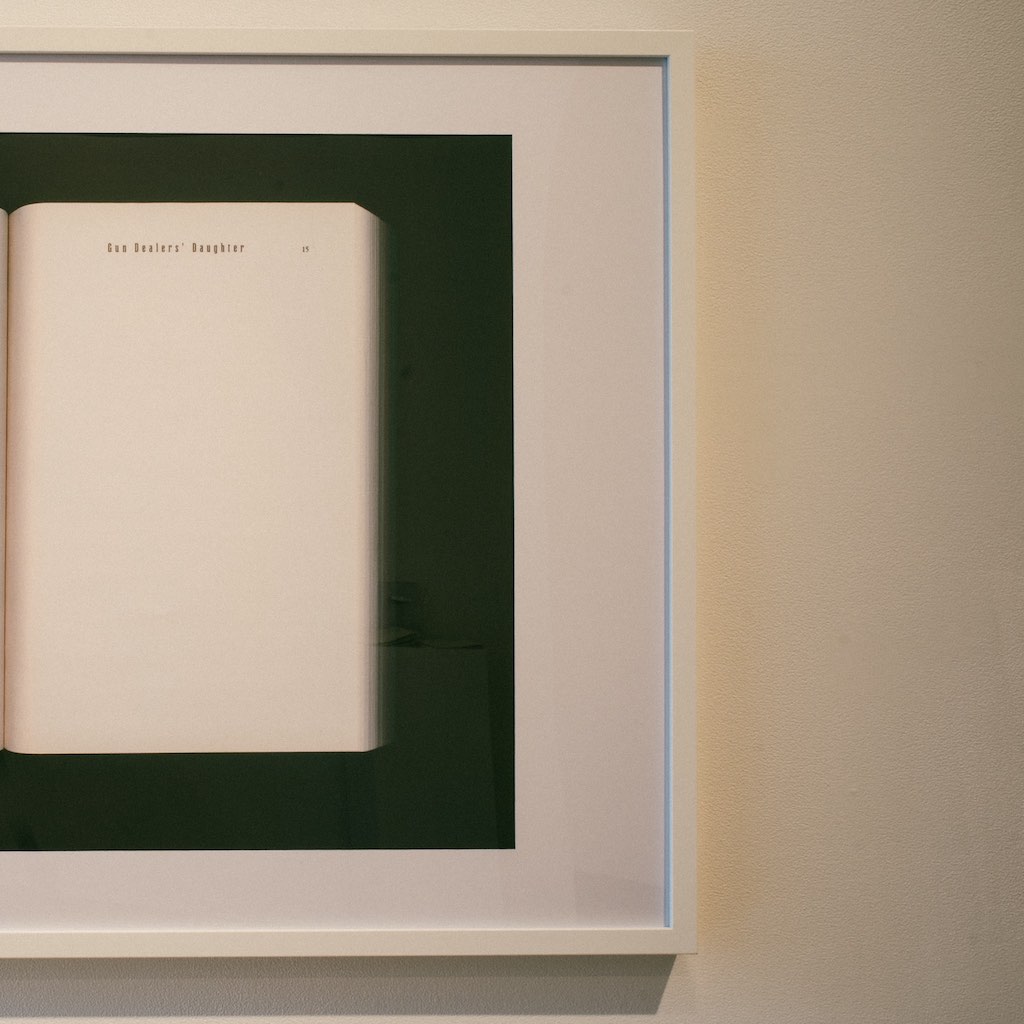
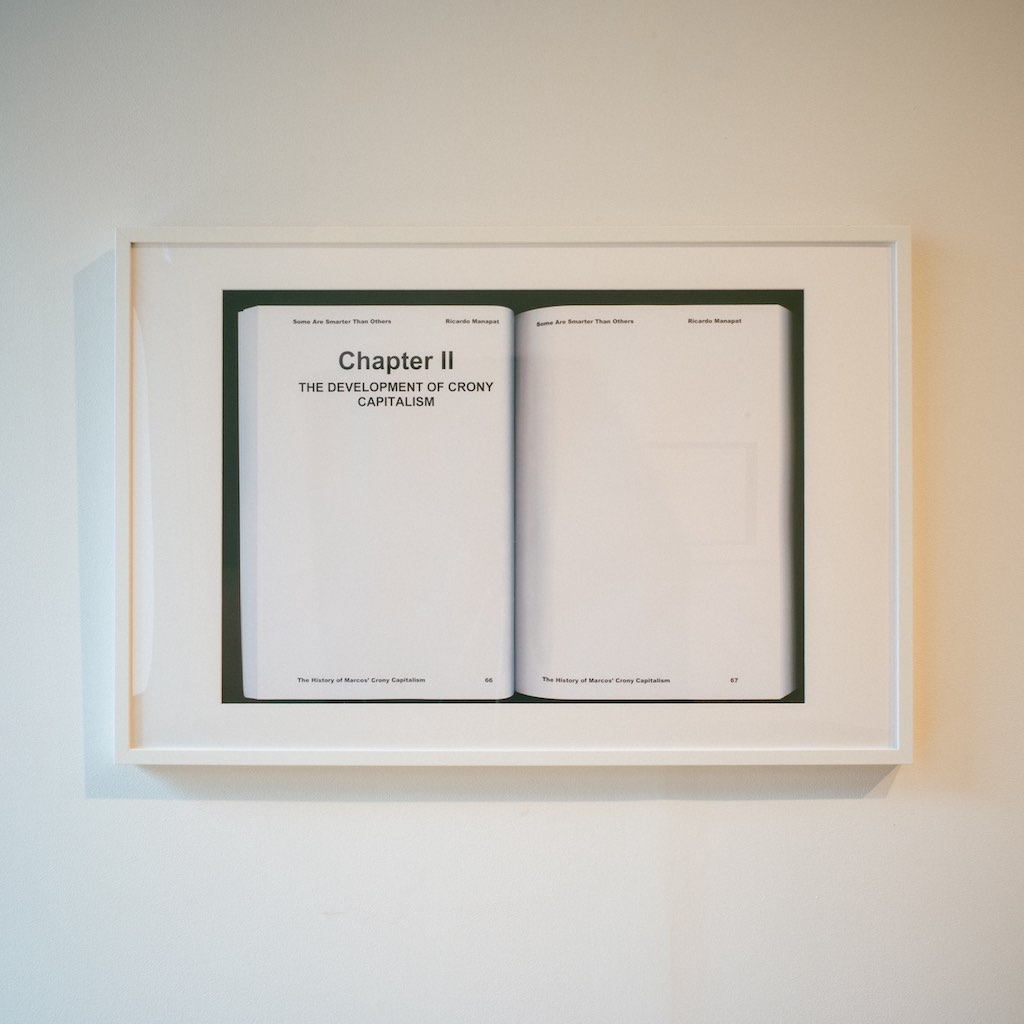
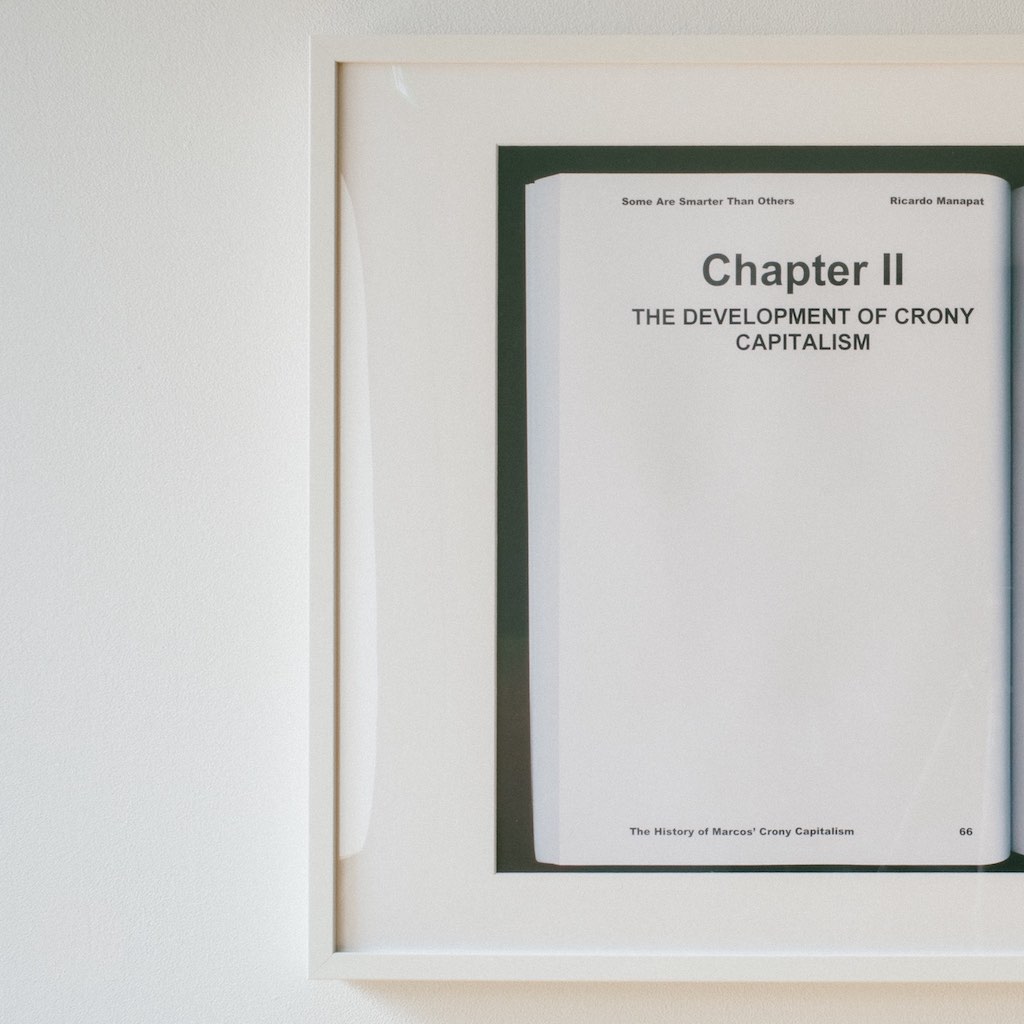
Documentation by Danny Luong
Ang Bagong Bagong Lipunan
(The New New Society)
Exhibition Essay by Marc Chavez
(The New New Society)
Exhibition Essay by Marc Chavez
The Nigerian novelist Chimamanda Ngozi Adichie spoke about “the danger of a single story” and the power to tell that story, to make it the definitive story of a people or country. There is no single story about the Philippines – no one story about the Marcos dictatorship or martial law. Instead, there are many stories that have been told and many that have been erased.
In Ang Bagong Bagong Lipunan (The New New Society), Cris Mora looks at how these stories are told, rewritten, forgotten, or discarded. Mora’s art and practice has been one of observation; an investigation of history uncovering the scale of power structures that underpin political, economic, and social issues in the Philippines. He conducts a census of who and what has been forgotten and we are given the role of historian and witness, navigating both the loss and preservation of collective memory.
The Marcos dictatorship and martial law were monumental events in Philippine history, a period that changed many lives. It shaped the futures of ordinary people, families, activists, journalists, and artists, and our responsibility today is to remember these stories refracted through the lens of history.
Maniwala (Belief)
In light of the “resurrection of the country’s most divisive political dynasty,” Mora’s exhibition explores the malleability and fragility of historical narrative by acts of censorship and disinformation. Through five new art works, Mora looks at the erasure and revision of history by those in power and the impact it has had on the Philippines. By asking us to confront those attempting to rewrite Filipino history, Mora challenges us to take our power back, to put into action our unwavering belief in the future of the Philippines as a democratic country and to tell a new story.
In Ang Bagong Bagong Lipunan (The New New Society), Cris Mora looks at how these stories are told, rewritten, forgotten, or discarded. Mora’s art and practice has been one of observation; an investigation of history uncovering the scale of power structures that underpin political, economic, and social issues in the Philippines. He conducts a census of who and what has been forgotten and we are given the role of historian and witness, navigating both the loss and preservation of collective memory.
The Marcos dictatorship and martial law were monumental events in Philippine history, a period that changed many lives. It shaped the futures of ordinary people, families, activists, journalists, and artists, and our responsibility today is to remember these stories refracted through the lens of history.
Maniwala (Belief)
In light of the “resurrection of the country’s most divisive political dynasty,” Mora’s exhibition explores the malleability and fragility of historical narrative by acts of censorship and disinformation. Through five new art works, Mora looks at the erasure and revision of history by those in power and the impact it has had on the Philippines. By asking us to confront those attempting to rewrite Filipino history, Mora challenges us to take our power back, to put into action our unwavering belief in the future of the Philippines as a democratic country and to tell a new story.
The New Society
Now in 2022, disillusioned by the failure of successive administrations to tackle the legacies of the Marcos dictatorship like rampant poverty and political corruption, Ferdinand “Bong Bong” Marcos Jr., the son of the late dictator, has been elected with a majority of votes as the 17th President of the Philippines.
In 1974, Ferdinand Marcos had a vision of a New Society in the Philippines, a “Bagong Lipunan,” where he would use the special powers given to him under martial law to usher in an era of reforms for the country.
One such reform was the 1974 Labor Code – the Marcos administration institutionalized cheap labor export creating measures that facilitated Overseas Filipino Workers (OFW). Today you will find Filipinos working in every industry in countries like Canada, the United States, and Great Britain. Whether they leave as OFWs or as immigrants, the desire to leave the Philippines is driven by the notion that better opportunities only exist outside of the country. Mora’s own parents left for Canada in 1989 in search of a more secure future. Separated from their families for years, the Filipino diaspora supports millions of people back in the Philippines. Their remittances accounted for nearly 10 percent of the GDP of the Philippine economy in 2019. In 2021, the Bangko Sentral ng Pilipinas showed that cash remittances rose to $31 billion. This export of labor was a solution meant to improve the country’s employment and economic prospects, but in reality the unsustainable policy robs the Philippines’ of one of its most valuable resources – its people.
There are claims that Marcos’ administration was a so-called “Golden Age” for the Philippines, however data examined by the Martial Law Museum tells a different story. The realities of martial law not only saw increased poverty, decreasing wages, deforestation, and massive international debt, but it also meant silencing the free press, imprisonment of political adversaries, and suspension of the democratic process.
One such reform was the 1974 Labor Code – the Marcos administration institutionalized cheap labor export creating measures that facilitated Overseas Filipino Workers (OFW). Today you will find Filipinos working in every industry in countries like Canada, the United States, and Great Britain. Whether they leave as OFWs or as immigrants, the desire to leave the Philippines is driven by the notion that better opportunities only exist outside of the country. Mora’s own parents left for Canada in 1989 in search of a more secure future. Separated from their families for years, the Filipino diaspora supports millions of people back in the Philippines. Their remittances accounted for nearly 10 percent of the GDP of the Philippine economy in 2019. In 2021, the Bangko Sentral ng Pilipinas showed that cash remittances rose to $31 billion. This export of labor was a solution meant to improve the country’s employment and economic prospects, but in reality the unsustainable policy robs the Philippines’ of one of its most valuable resources – its people.
There are claims that Marcos’ administration was a so-called “Golden Age” for the Philippines, however data examined by the Martial Law Museum tells a different story. The realities of martial law not only saw increased poverty, decreasing wages, deforestation, and massive international debt, but it also meant silencing the free press, imprisonment of political adversaries, and suspension of the democratic process.
Now in 2022, disillusioned by the failure of successive administrations to tackle the legacies of the Marcos dictatorship like rampant poverty and political corruption, Ferdinand “Bong Bong” Marcos Jr., the son of the late dictator, has been elected with a majority of votes as the 17th President of the Philippines.
[1] https://www.ted.com/talks/chimamanda_ngozi_adichie_the_danger_of_a_single_story
[2] https://martiallawmuseum.ph/magaral/martial-law-in-data/
Bio /
Cris Mora is a Filipino-Canadian artist and cultural worker. He was born in Manila in 1984 and moved to Toronto at the age of four. Mora studied Visual Art and Economics at the University of Western Ontario in Canada. He works across disciplines and media to explore the relationship between politics, migration and identity. In addition to his art practice, Mora is also an experienced cultural worker. He has worked as an arts administrator in North America, Europe and Asia. He is currently the Public Art Coordinator at the City of Surrey, BC. Mora has exhibited in Canada, Singapore and the Philippines.
中文翻译 Chinese Translation...
